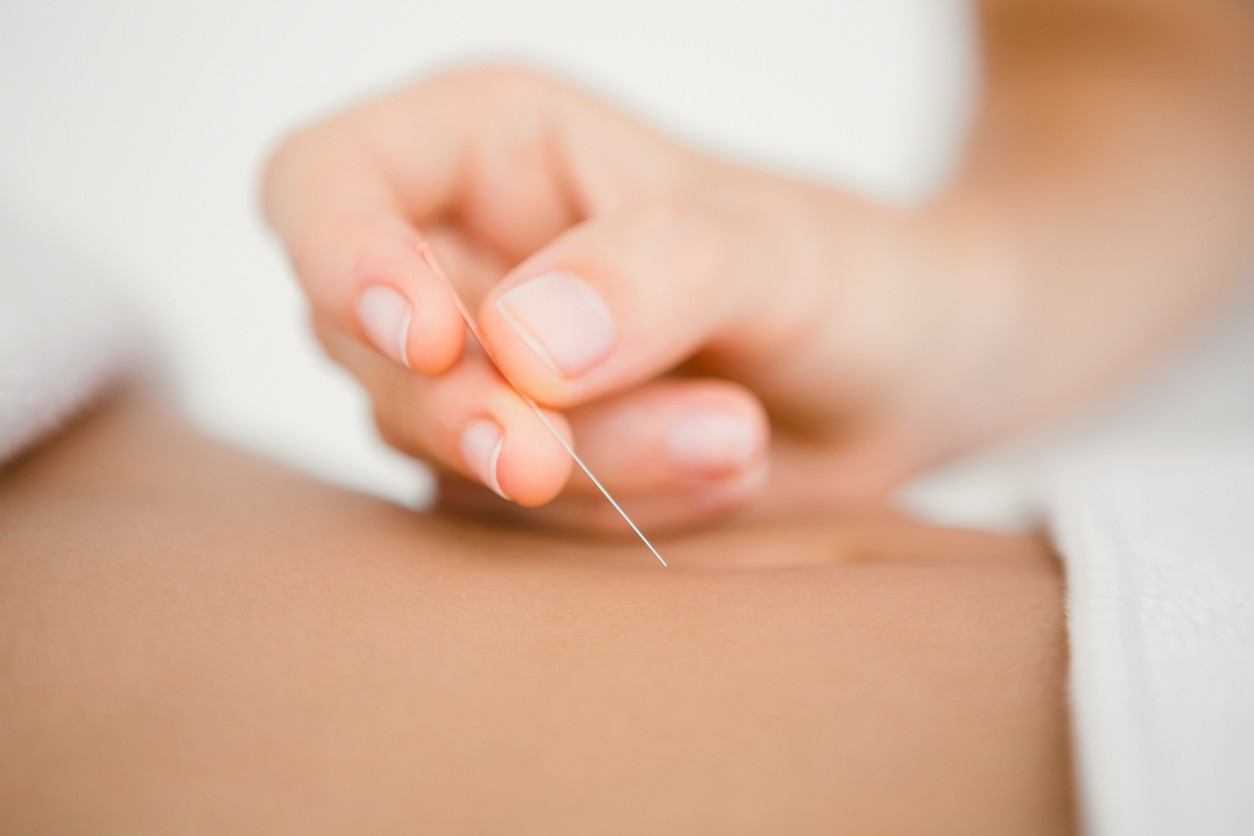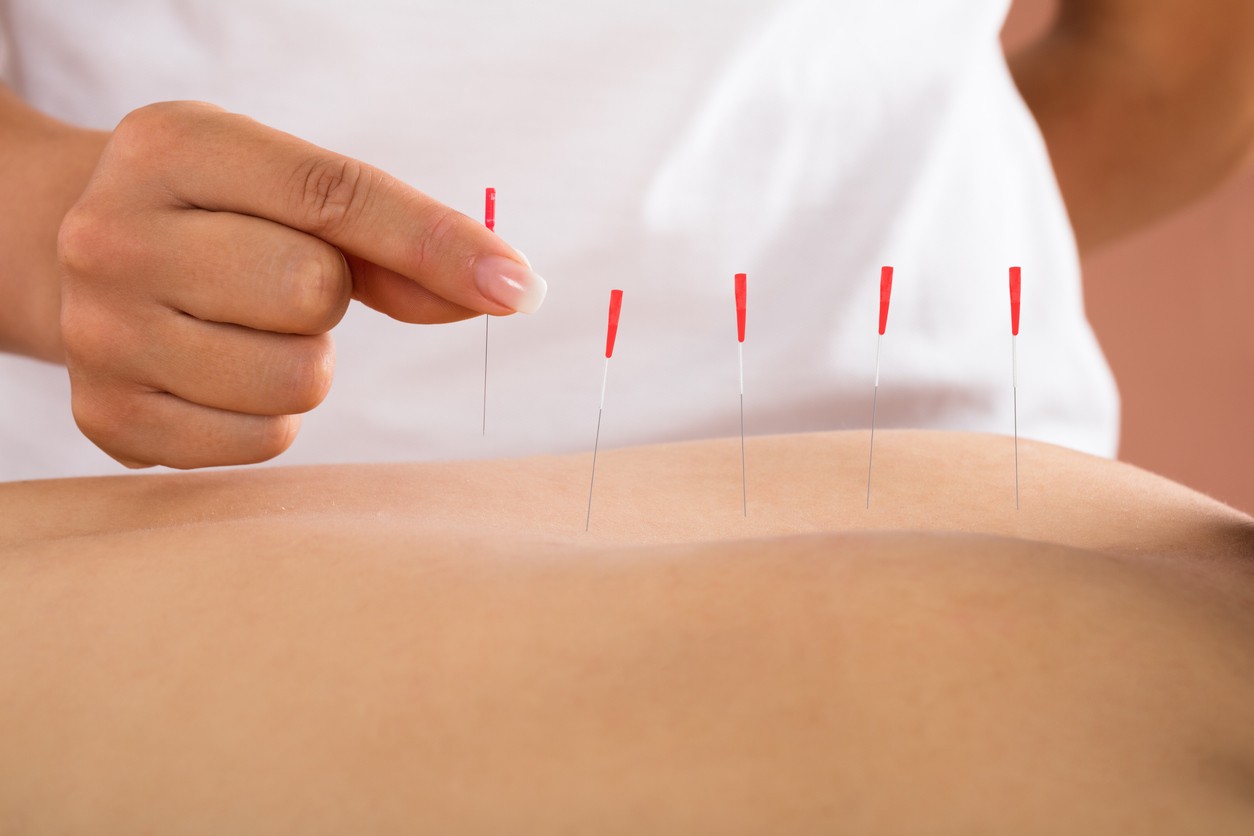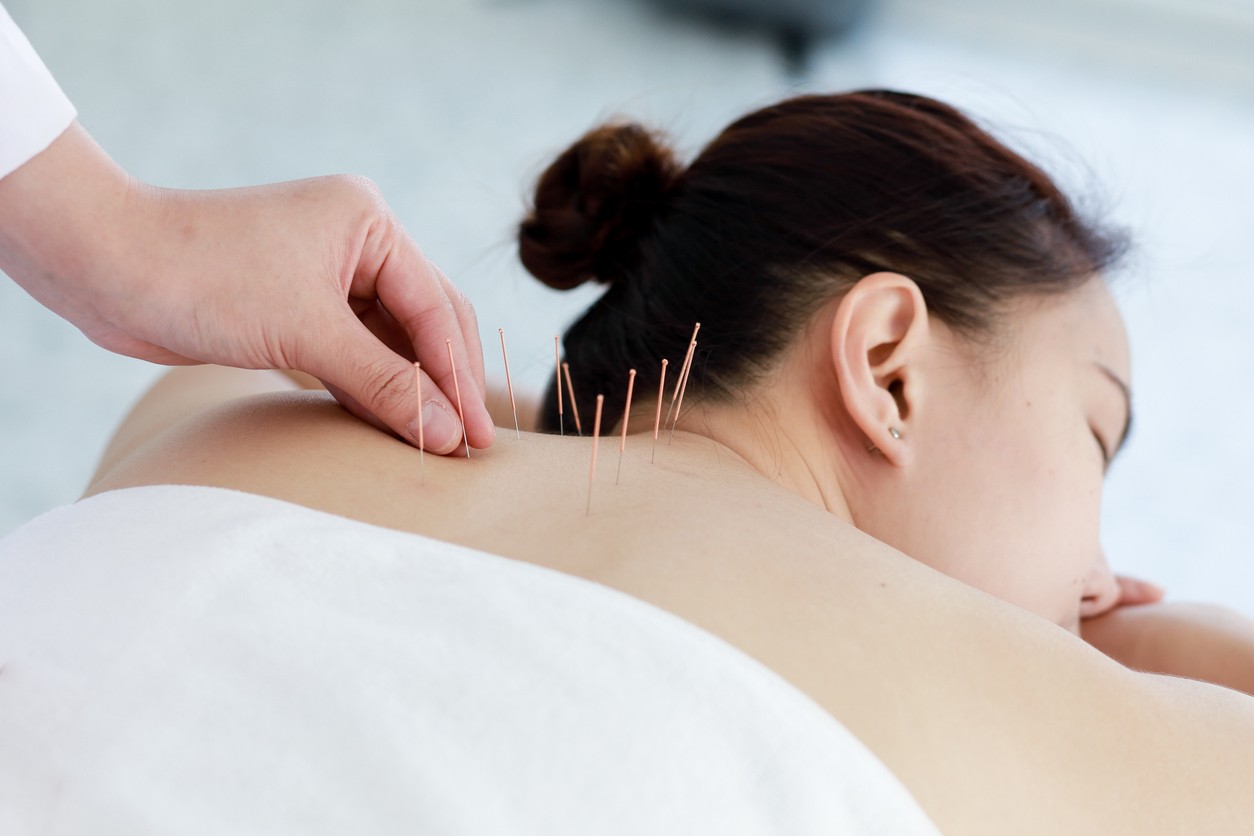Top Benefits of Acupuncture for Insomnia
Do you have trouble getting to and staying asleep each night? You’re not alone. Nearly 70 million Americans deal with a sleep disorder, most commonly insomnia. Short-term insomnia affects about 30% of the population, while long-lasting insomnia impacts about 10% of people. If you’re one of these people, it’s vital to find a solution for your physical, mental, and emotional well-being. Thanks to its increased popularity, many people wonder, “can acupuncture help insomnia?” Fortunately, natural solutions like acupuncture for insomnia offer a drug-free solution.
Continue reading to learn how this holistic therapy can improve your rest.
What is Acupuncture for Insomnia?
Acupuncture for insomnia is a drug-free solution for a better night’s rest. Unlike traditional prescriptions that cause daytime drowsiness, cognitive impairment, and dependence, acupuncture has very minimal side effects and is more readily available for your use.
Acupuncture for better sleep has been around for thousands of years as a part of Traditional Chinese Medicine. It is believed that your energy, qi (pronounced ‘chee’), runs along pathways throughout the body, known as meridians. When there are energy blockages in these pathways, you become susceptible to illness, pain, and other problems, like insomnia.
In western medicine, acupuncture for sleep is used as a neuromodulator that tones down the brain’s perception of certain sensory signals, like in instances of pain. By inserting hair-thin, sterilized needles into specified points, your acupuncturist also helps restore balance and promote proper functioning of the entire body. This process can stimulate the release of necessary hormones, decrease inflammation, and relax muscles, which helps you feel better all around.
A review of 46 trials that included 3811 patients even showed that acupuncture for sleep disorders increased both sleep quality and duration more than traditional techniques, like medicine and herbal remedies.
How Does Acupuncture for Insomnia Work?

At Total Body, we believe in treating your condition by addressing the root cause of your problem, whether that’s pain, stress, or another underlying factor. That’s why your appointment will begin with a discussion outlining your full medical history, daily lifestyle habits, diet, and sleep schedule. This information will help us determine what could be contributing to your insomnia.
From there, a skilled acupuncturist will insert about 5 to 20 needles in common acupuncture points for sleep, like the arms, legs, and feet. Once the needles are placed, you will lie still for about 30 minutes. This first session can last up to 90 minutes, while subsequent appointments will take anywhere from 45 to 60 minutes.
Generally, you will start with 2 to 3 sessions a week for about ten sessions if you experience temporary insomnia. If you deal with chronic insomnia, you may need ongoing treatment to ensure lasting success.
After a full round of acupuncture for sleep, we will reassess your condition to determine if you’re ready for a maintenance plan. An individualized treatment plan can involve your acupuncture sessions, along with additional therapies like chiropractic care and massage and daily activities that help you sleep better.
Five Acupuncture Points for Sleep
Specific acupuncture points correspond with various parts of the body — and some of the placements can feel seemingly unrelated to the area of treatment. However, there are five main acupuncture points for insomnia found in the arms, legs, and head that can help you sleep better:
1. HT7 (or Spirit Gate)

This acupuncture point for sleep is located at the crease on the inside of the wrist below the pinkie. Applying acupuncture to this area quiets the mind, which can help you get to sleep faster and reduce stress-related disturbances to provide greater quality rest.
2. SP6 (or Three Yin Intersection)

The SP6 is located on the inner leg above the ankle. To find it, locate the highest point of your ankle and then measure four finger-widths up. This acupuncture point for insomnia promotes relaxation to help improve your sleep. It can also help with menstrual cramps and other pelvic disorders.
Pregnant women should not access this pressure point, as it can induce labor.
3. LV3 (or Tai Chong)

The LV3 acupuncture point for sleep sits where the skin of the big toe and second toe connects. Stimulating this area helps ease insomnia, especially when related to stress, anxiety, or an unknown cause.
4. An Mian

This acupuncture point literally translates to “peaceful sleep.” It is located behind the ears on either side of the neck, just beyond the bony protrusion. Using “an mian” not only encourages full-body relaxation but can also ease anxiety and headaches that often stop you from getting a good night’s sleep.
5. Yin Tang

This acupuncture point for sleep is one of the most well-known, and for a good reason. The “yin tang” reduces instances of insomnia, as well as restlessness and agitation, which can both hinder your sleep. Not to mention, this acupuncture point can also ease tension in the neck, shoulders, and face. This spot sits just at the center of the eyebrows above your nose.
The acupuncturists in Bend may also stimulate additional acupuncture points in the soles and heels of your feet to make you more grounded and induce sleep after your session. You can also practice acupressure at home to boost your results. Simply locate these acupuncture points for sleep and apply light pressure or massage in circular motions before going to bed.
Benefits of Acupuncture for Insomnia

At night, your body heals and repairs itself from the stressors of the day. So, quality sleep is necessary to feel your best mentally and physically. Whether you’re dealing with a temporary bout of insomnia or have always experienced this condition, acupuncture for sleep can increase the quality and duration of your slumber in these ways:
1. Lowers Stress and Anxiety
High levels of the stress hormone cortisol can impact your ability to get to sleep. It can also impact the quality of sleep, leaving you unrefreshed in the morning. Acupuncture resets your cortisol hormone levels to decrease stress. As mentioned earlier, certain points also help quiet the mind so that you can doze off without racing thoughts.
Plus, acupuncture also encourages your brain to release feel-good hormones, like serotonin, further reducing the stress that may keep you awake.
2. Stimulates and Balances Hormones
Acupuncture for insomnia stimulates the release of the sleep-inducing hormone melatonin. Melatonin signals to your body that it’s time to wind down and head to bed. People with insomnia often experience imbalances where they don’t create enough of this hormone or don’t begin producing it early enough to get to bed on time. By increasing your levels with the help of acupuncture, you may benefit from a more regular sleep schedule.
3. Decreases Pain
Chronic pain is often linked to insomnia, as the discomfort makes it difficult to rest. Fortunately, pain relief is a common use for acupuncture. This treatment works to ease inflammation in affected joints and muscles to make you more comfortable as early as your first session.
4. Promotes Relaxation
Full-body relaxation is a surefire way to get to sleep. Acupuncture boosts this effect by reducing activity in your sympathetic nervous system — the area responsible for your flight-or-fight response. As this system shuts off, your heart rate begins to slow, blood pressure drops, and your body begins to relax.
Pairing your acupuncture session with a massage appointment can further amplify your results. Massage therapy carries many of the same benefits of acupuncture, including relaxation, stress relief, and pain relief. Some people even fall asleep on the table during their appointment.
5. Increases Blood Circulation
Acupuncture for better sleep improves blood circulation throughout the body, namely in sleep-inducing areas. With increased oxygen, your body is more likely to get to a relaxed state.
Additional Benefits of Acupuncture for Overall Health
Although we deliver targeted treatment through acupuncture for better sleep, you will also reap several other benefits that can improve your health overall.
Pain Relief
As mentioned earlier, pain relief is a common result of acupuncture. Whether you experience joint pain, muscle tension or soreness, or spasms, acupuncture offers a drug-free solution. It triggers the release of endorphins—natural pain-relieving chemicals produced by the body.
Anxiety Improvement
Because acupuncture for insomnia and anxiety works as a neuromodulator, it can influence your brain function. This helpful tool can stimulate the part of the mind that controls emotions like anxiety to help you feel more at ease. The increased serotonin and decreased cortisol after each session also help reduce anxious feelings.
Other Sleep Conditions
Insomnia might not be the only thing keeping you up at night. Sleep apnea is another common sleep disorder, affecting about 26% of people — and acupuncture can help! Acupuncture for sleep apnea prevents the upper respiratory muscles from collapsing to reduce the frequency and severity of the condition. It also reduces the chances of the tongue slipping back and blocking the airway during sleep.
Schedule Your Acupuncture Appointment Today
Are you ready to finally experience a deep, restful slumber? Acupuncture for better sleep may be the answer. The skilled acupuncturists at Total Body Chiropractic, Massage, & Acupuncture work with you to deliver the best results. Schedule your appointment today and start sleeping better tonight!

